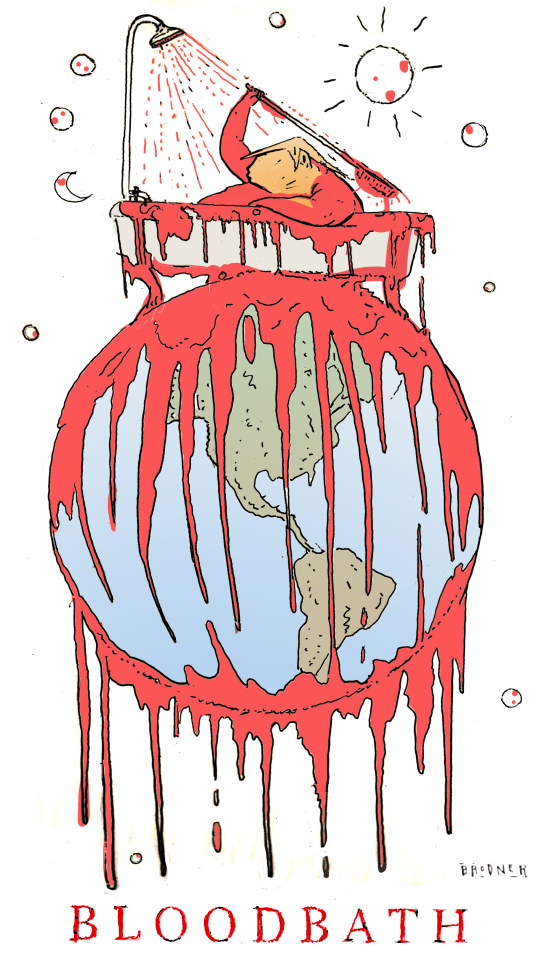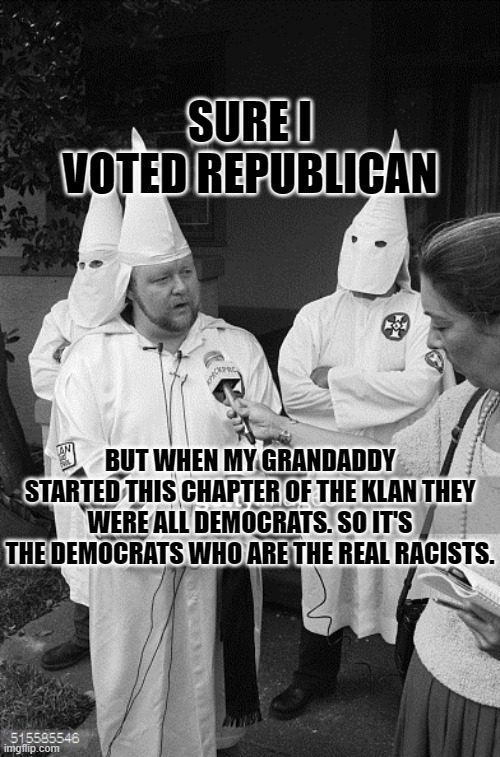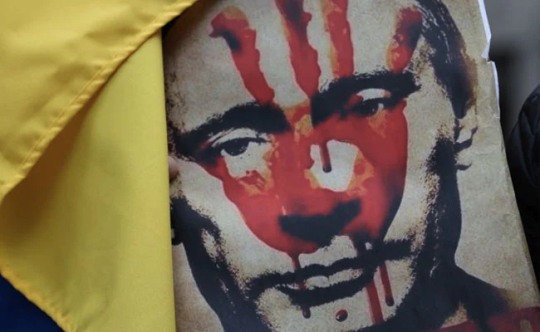#manafort
Text

Stephen Brodner
* * * *
LETTERS FROM AN AMERICAN
March 18, 2024
HEATHER COX RICHARDSON
MAR 19, 2024
It seems to me that the news tends to be slow on weekends during the Biden administration, while Mondays are a firehose. (In contrast, Trump’s people tended to dump news in the middle of the night, after Fox News Channel personality Sean Hannity’s show was over, which may or may not have been a coincidence.)
So, lots going on today as the Biden administration continues to make the case that a democratic government can work for ordinary Americans while Trump and his supporters insist that a country run by such an administration is an apocalyptic nightmare.
First, economic analyst Steven Rattner reported today that according to The Economist, since the end of 2019 the American economy has grown about 8%, while the European Union has grown about 3%, Japan 1%, and Britain not at all. Rattner and economist Brendan Duke reported that entrepreneurship in the U.S. is booming, with 5.2 million “likely employer” business applications filed between January 2021 and December 2023, more than a 33% increase over those filed between 2017 and 2019.
Economists Justin Wolfers and Arin Dube noted that, as Wolfers wrote, “[f]or the first time in forever, real wage gains are going to those who need them most.” Wages have gone up for all but the top 20% of Americans, whose wages have fallen, reducing inequality.
Federal Trade Commission (FTC) head Lina Khan announced that after the FTC challenged a set of AstraZeneca inhaler patents last September as being improperly listed, today AstraZeneca said it would cap patients’ out-of-pocket costs for its inhalers at $35, down from hundreds. Earlier this month, Boehringer Ingelheim did the same.
The Environmental Protection Agency today announced it was banning asbestos, which is linked to more than 40,000 deaths a year in the U.S. and was already partly banned, but which is still used in a few products. More than 50 other countries already ban it.
Also today, President Joe Biden issued an executive order to advance women’s health research to integrate women’s health into federal research initiatives, strengthening data collection and making funding available for research in a comprehensive effort to equalize attention to men’s and women’s health across their lifespans. The federal government did not require women’s health to be included in federally funded medical research until 1993. In a speech today, First Lady Jill Biden recalled that in the early 1970s, researchers studying estrogen’s effect in preventing heart attacks selected 8,341 people for the study. All of them were men.
Last month, First Lady Biden announced $100 million in funding for research into women’s health, and last Thursday Vice President Kamala Harris visited a Planned Parenthood clinic that provides abortion care in addition to breast cancer screening, fibroid care, and contraceptive care. She noted that women’s reproductive health has been in crisis since the Supreme Court overturned Roe v. Wade in June 2022, with women in some states unable to access the care they need.
Former president Trump, who is now the presumptive Republican presidential nominee, prompted some of the economic reporting I noted above when he tried to spark attacks on President Joe Biden by asking on social media if people feel better off now than they were four years ago. This was perhaps a mistaken message, since four years ago we were in the early days of the coronavirus pandemic. Supermarket shelves were empty, toilet paper was hard to find, healthcare professionals were wearing garbage bags and reusing masks because the Trump administration had permitted the strategic stockpile to run low, deaths were mounting, the stock market had crashed, and the economy had ground to a halt.
On this day four years ago, I recorded that “more than 80 national security professionals broke with their tradition of non-partisanship to endorse former Vice President Joe Biden for president, saying that while they were from all parties and disagreed with each other about pretty much everything else, they had come together to stand against Trump.”
Here in the present, Trump appears to be getting more desperate as his problems, including his apparent growing difficulty speaking and connecting with his audience, mount. Last week, in an interview, he echoed Republican lawmakers and pundits when he suggested he was open to cutting Social Security, Medicare, and Medicaid, something Republican lawmakers try to avoid saying to general audiences because it is hugely unpopular. Trump has since tried to repair that damage, for example, when he insisted on Saturday that it was he, rather than Biden, who would protect those programs. (In fact, Biden has called for expanding the social safety net, not contracting it, and last year forced Republicans to back off from proposed cuts.)
Saturday’s speech illustrated the degree to which Trump’s rhetoric has become more profane and apocalyptic as he vows revenge on those he sees as his enemies. Campaigning in Vandalia, Ohio, for his chosen Senate candidate, Trump suggested that certain migrants “are not people.” Then he said he would put tariffs of 100% on cars manufactured in Mexico by Chinese companies for sale in the U.S., “if I get elected. Now, if I don't get elected, it's going to be a bloodbath for the whole—that's going to be the least of it. It's going to be a bloodbath for the country.”
By Sunday, Trump’s embrace of the word “bloodbath” had created a firestorm. Surrogates insisted that he was talking about the auto industry alone, but as scholar of rhetoric Jen Mercieca and legal commentator Asha Rangappa note, Trump is a master at giving himself enough plausible deniability for his supporters to claim that, as Rangappa put it, “he wasn’t saying what he was saying. I know what he meant. He knows what he meant. You know what he meant.” In the same speech Saturday, Trump called those convicted of violence on January 6, 2021, “hostages” and “patriots,” and has said he would pardon them, appearing to endorse violence to return him to power.
This morning, Trump’s lawyers told a court that Trump cannot come up with either the money or a bond for the $454 million plus interest he owes in penalties and disgorgement after he and the Trump Organization were found guilty of fraud in a Manhattan court earlier this year. The lawyers say they have approached 30 different companies to back the bond, and they have all declined. They will not issue a bond without cash or stock behind it. Trump's real estate holdings, which are likely highly leveraged, aren’t enough.
Last year, Trump said under oath that he had “substantially in excess of 400 million in cash,” and that amount was “going up very substantially every month.” Apparently, that statement was a lie, or the money has evaporated, or Trump doesn’t want to use it to pay this court-ordered judgment on top of the $91.6 million bond he posted earlier this month in the second E. Jean Carroll case.
Timothy O’Brien of Bloomberg notes that Trump’s desperate need for cash makes him even more of a national security threat than his retention of classified documents made it clear he already was. “[T]he going is likely to get rough for Trump as this plays out,” O’Brien writes, “and he’s likely to become more financially desperate with each passing day,” making him “easy prey for interested lenders—and an easy mark for overseas interests eager to influence US policy.”
This morning, Josh Dawsey of the Washington Post reported that Trump is turning to his 2016 campaign manager Paul Manafort to advise him in 2024. Dawsey notes that the campaign’s focus appears to be on the Republican National Convention in Milwaukee in July, which suggests Trump’s people are concerned that his nomination will be contested. Manafort has been known as a “convention fixer” since 1976.
Manafort is also the key link between the 2016 Trump campaign and Russian operatives. Manafort worked for many years for Ukrainian politician Viktor Yanukovich, who was closely tied to Russian president Vladimir Putin. When Ukrainians threw Yanukovich out of office in 2014, Manafort was left with large debts to Russian oligarch Oleg Deripaska. In 2016, Manafort began to work for Trump’s campaign. An investigation by a Republican-dominated Senate Intelligence Committee into the links between Trump’s campaign and Russia determined that Manafort had shared polling data from the Trump camp with his partner, Konstantin Kilimnik, who the senators assessed was a Russian operative.
In 2018, as part of Special Counsel Robert Mueller’s investigation, Manafort was found guilty of hiding millions of dollars he had received for lobbying on behalf of Yanukovych and his pro-Russian political party, then getting loans through false financial records when Yanukovych lost power. A judge sentenced him to more than seven years in prison.
Trump pardoned Manafort in December 2020, shortly after losing the presidential election.
LETTERS FROM AN AMERICAN
HEATHER COX RICHARDSON
#Letters from An American#Heather Cox Richardson#normalizing pathology#Election 2024#Manafort#Stephen Brodner#bloodbath#economic news#social safety net#american foreign policy#TFG's money woes
6 notes
·
View notes
Text

Challenge: Do You Know Hip Hop History? https://www.blaqsbi.com/2kb4
0 notes
Text

#allen weisselberg#steve bannon#roger stone#michael cohen#paul manafort#mike flynn#rick gates#trump#donald trump#he barely knew them
514 notes
·
View notes
Text
Former President Donald Trump loves calling for other people to be charged with crimes. Instead, today, he’ll be formally accused of committing a few himself.
Trump told his 2016 Democratic opponent, Hillary Clinton, she’d “be in jail” if he won the election, in the middle of a presidential debate. He accused former President Barack Obama of committing “treason.” He slammed President Joe Biden’s “crime family.” He called a journalist a “criminal” for failing to report news Trump wanted to hear.
But today, Trump will be arraigned in a Manhattan courtroom shortly after 2:00 p.m. EST, on charges widely expected to arise from a $130,000 hush money payment to porn star Stormy Daniels.
youtube
Now that Trump is the one being charged with a crime, Trump and his allies are blasting the move as an unacceptable politicization of the criminal justice system, overlooking the many times Trump lobbied, inside and outside the White House, for his political opponents to be investigated and criminally charged.
They’re also glossing over the fact that Trump is hardly alone among his friends: A truly staggering number of people Trump likes to pal around with—including his advisors, lawyers and top supporters—have also been found guilty of committing a wide variety of crimes, from financial fraud to lying under oath and more.
Viewed in that light, Trump is just the latest of his friend group to catch a case.
Trump’s longtime Chief Financial Officer, Allen Weisselberg, is currently wrapping up a five-month sentence in the notorious Rikers Island prison complex after entering a guilty plea on 15 criminal counts ranging from grand larceny to tax fraud.
Trump’s personal attorney Michael Cohen is now expected to be a prime witness against Trump at the former president’s upcoming criminal trial. Cohen was sentenced to three years in federal prison after pleading guilty to eight criminal counts, including tax evasion and orchestrating unlawful contributions to Trump’s presidential campaign. Cohen said he was directed by Trump to set up hush money payments to women who said they slept with Trump before the 2016 election. (Trump denies all charges, and has repeatedly insisted he did nothing wrong.)
Trump’s former campaign and White House advisor, Steve Bannon, was convicted of contempt of Congress last summer, and is now defending himself from a new round of criminal fraud charges related to a private non-profit group that aimed to build a wall on the U.S.-Mexico border. New York prosecutors accuse Bannon of defrauding donors to a charity We Build The Wall. Bannon has pleaded not guilty.
Then there’s Paul Manafort, Trump’s former campaign chairman, who was sentenced to seven years following his convictions for financial crimes, only to be pardoned by Trump. Trump also pardoned his longtime political advisor Roger Stone, who’d been convicted at a jury trial on charges of obstruction, false statements, and witness tampering relating to the Congressional investigation of Russia’s interference in the 2016 election.
Even Trump’s business has been found guilty of committing crimes.
Trump’s company was convicted of all 17 criminal counts against it during a trial in late 2022, which took place in the very same courtroom where Trump’s personal criminal case is now set to play out. He’ll even have the same New York Supreme Court Judge Juan Merchan overseeing his personal case.
Trump’s criminal drama in Manhattan, of course, isn’t the only legal jeopardy he’s facing.
He’s also being investigated by an Atlanta-area prosecutor for his attempts to reverse his 2020 election defeat in Georgia. And a federal special counsel named Jack Smith is overseeing two investigations. One concerns whether Trump broke the law by stashing secret government documents at his Mar-a-Lago club in Palm Beach, Florida; and the other concerns whether Trump committed crimes while trying to stay in power despite losing the 2020 election.
#us politics#news#vice news#2023#donald trump#republicans#conservatives#gop#manhattan grand jury#indicted#hush money#Stormy Daniels#michael cohen#Allen Weisselberg#trump organization scandal#trump organization#Steve Bannon#Paul Manafort#Roger Stone#Judge Juan Merchan#new york#georgia election investigation#classified documents probe#YouTube#videos
52 notes
·
View notes
Text

#us politics#memes#shitpost#us history#southern strategy#southern democrats#dixiecrats#kkk#ku klux klan#the parties switched#lee atwater#president richard nixon#racism#racists#paul manafort#roger stone#bigots be like#republicans be like#conservatives be like
88 notes
·
View notes
Text
I love playing lets remember some guys about the trump administration.
20 notes
·
View notes
Text



So the Breakquest Club is coming back, and I thought it appropriate to at least make one text post with the new character
#breakquest club#morrigan#morrigan manafort#rob#rob o'cop#pandora#pandora christianti#breakquest club text posts
2 notes
·
View notes
Text
You need to listen and understand. The REPUBLICANS proved these things before trump took office.He's going to try to do this same stuff since it worked the first time without consequence.
6 notes
·
View notes
Text

LETTERS FROM AN AMERICAN
February 17, 2024
HEATHER COX RICHARDSON
Although few Americans paid much attention at the time, the events of February 18, 2014, in Ukraine would turn out to be a linchpin in how the United States ended up where it is a decade later.
On that day ten years ago, after months of what started as peaceful protests, Ukrainians occupied government buildings and marched on parliament to remove Russian-backed president Viktor Yanukovych from office. After the escalating violence resulted in many civilian casualties, Yanukovych fled to Russia, and the Maidan Revolution, also known as the Revolution of Dignity, returned power to Ukraine’s constitution.
The ouster of Yanukovych meant that American political consultant Paul Manafort was out of a job.
Manafort had worked with Yanukovych since 2004. In that year, the Russian-backed politician appeared to have won the presidency of Ukraine. But Yanukovych was rumored to have ties to organized crime, and the election was full of fraud, including the poisoning of a key rival who wanted to break ties with Russia and align Ukraine with Europe. The U.S. government and other international observers did not recognize the election results, while Russia’s president Vladimir Putin congratulated Yanukovych even before the results were officially announced.
The government voided the election and called for a do-over.
To rehabilitate his reputation, Yanukovych turned to Manafort, who was already working for a young Russian billionaire, Oleg Deripaska. Deripaska worried that Ukraine would break free of Russian influence and was eager to prove useful to Vladimir Putin. At the time, Putin was trying to consolidate power in Russia, where oligarchs were monopolizing formerly publicly held industries and replacing the region’s communist leaders. In 2004, American journalist Paul Klebnikov, the chief editor of Forbes in Russia, was murdered as he tried to call attention to what the oligarchs were doing.
With Manafort’s help, Yanukovych finally won the presidency in 2010 and began to turn Ukraine toward Russia. In November 2013, Yanukovych suddenly reversed Ukraine’s course toward cooperation with the European Union, refusing to sign a trade agreement and instead taking a $3 billion loan from Russia. Ukrainian students protested the decision, and the anger spread quickly. In 2014, after months of popular protests, Ukrainians ousted Yanukovych from power and he fled to Russia.
Manafort, who had borrowed money from Deripaska and still owed him about $17 million, had lost his main source of income.
Shortly after Yanukovych’s ouster, Russia invaded Ukraine’s Crimea and annexed it, prompting the United States and the European Union to impose economic sanctions on Russia itself and also on specific Russian businesses and oligarchs, prohibiting them from doing business in U.S. territories. These sanctions were intended to weaken Russia and froze the assets of key Russian oligarchs.
By 2016, Manafort’s longtime friend and business partner Roger Stone—they had both worked on Richard Nixon’s 1972 campaign—was advising Trump’s floundering presidential campaign, and Manafort was happy to step in to help remake it. He did not take a salary but reached out to Deripaska through one of his Ukrainian business partners, Konstantin Kilimnik, immediately after landing the job, asking him, “How do we use to get whole? Has OVD [Oleg Vladimirovich Deripaska] operation seen?”
Manafort began as an advisor to the Trump campaign in March 2016 and became the chairman in late June.
Thanks to journalist Jim Rutenberg, who pulled together testimony given both to the Mueller investigation and the Republican-dominated Senate Intelligence Committee, transcripts from the impeachment hearings, and recent memoirs, we now know that in 2016, Russian operatives presented Manafort a plan “for the creation of an autonomous republic in Ukraine’s east, giving Putin effective control of the country’s industrial heartland, where Kremlin-armed, -funded, and -directed ‘separatists’ were waging a two-year-old shadow war that had left nearly 10,000 dead.”
In exchange for weakening NATO, undermining the U.S. stance in favor of Ukraine in its attempt to throw off the Russians who had invaded in 2014, and removing U.S. sanctions from Russian entities, Russian operatives were willing to help Trump win the White House. The Republican-dominated Senate Intelligence Committee in 2020 established that Manafort’s Ukrainian business partner Kilimnik, whom it described as a “Russian intelligence officer,” acted as a liaison between Manafort and Deripaska while Manafort ran Trump’s campaign.
Now, ten years later, Putin has invaded Ukraine in an effort that when it began looked much like the one his operatives suggested to Manafort in 2016, Trump has said he would “encourage Russia to do whatever they hell they want” to NATO allies that don’t commit 2% of their gross domestic product to their militaries, and Trump MAGA Republicans are refusing to pass a measure to support Ukraine in its effort to throw off Russia’s invasion.
The day after the violence of February 18, 2014, in Ukraine, then–vice president Joe Biden called Yanukovych to “express grave concern regarding the crisis on the streets” and to urge him “to pull back government forces and to exercise maximum restraint.”
Ten years later, Russia has been at open war with Ukraine for nearly two years and has just regained control of the key town of Avdiivka because Ukrainian troops lack ammunition. President Joe Biden is warning MAGA Republicans that “[t]he failure to support Ukraine at this critical moment will never be forgotten.”
“History is watching,” he said.
LETTERS FROM AN AMERICAN
HEATHER COX RICHARDSON
#letters from an american#heather cox richardson#Putin#Russia#War in Ukraine#disinformation#Manafort#Russia and Trump#american politics#election 2024#MAGA collusion with Russia#anti-american
5 notes
·
View notes
Text

Challenge: How Well Do You Know Blacks in The Arts https://www.blaqsbi.com/3B3s
0 notes
Text
Paul Manafort has agreed to pay $3.15 million he owes to the US government over misrepresentations he made on his tax returns almost a decade ago, bringing to a close the former Trump campaign chairman’s financial tangles in court.
Manafort hadn’t disclosed to the Treasury Department nearly two dozen bank accounts in Cyprus, St. Vincent and the Grenadines and the UK that he used for political consulting business he did in Ukraine in 2013 and 2014, according to court filings.
The offshore accounts had tens of thousands of dollars in them, making it necessary for him to report them to the IRS. But on his tax returns, Manafort said he had no foreign bank accounts.
Manafort later admitted to failing to disclose the accounts as part of his guilty plea on a host of financial and tax crimes in the Mueller investigation. He was pardoned by then-President Trump in late 2020, again skirting some of the payback requirements.
The Justice Department sued Manafort in April last year “to collect outstanding civil penalties … for his willful failure to timely report his financial interest in foreign bank accounts,” court filings said. The DOJ also sought interest and late payment fees from Manafort.
2 notes
·
View notes
Text

13 notes
·
View notes
Link
“Upon receipt of unevaluated intelligence information from Australia, the FBI swiftly opened the Crossfire Hurricane investigation. In particular, at the direction of Deputy Director Andrew McCabe, Deputy Assistant Director for Counterintelligence Peter Strzok opened Crossfire Hurricane immediately. Strzok, at a minimum, had pronounced hostile feelings toward Trump.”
“The matter was opened as a full investigation without ever having spoken to the persons who provided the information. Further, the FBI did so without (i) any significant review of its own intelligence databases, (ii) collection and examination of any relevant intelligence from other U.S. intelligence entities, (iii) interviews of witnesses essential to understand the raw information it had received or (iv) using any of the standard analytical tools typicallv employed by the FBI in evaluating raw intelligence,” the report concluded.
“Had it done so … the FBI would have learned that their own experienced Russia analysts had no information about Trump being involved with Russian leadership officials, nor were others in sensitive positions at the CIA, the NSA, and the Department of State aware of such evidence concerning the subject. In addition, FBI records prepared by Strzok in February and March 2017 show that at the time of the opening of Crossfire Hurricane, the FBI had no information in its holdings indicating that at any time during the campaign anyone in the Trump campaign had been in contact with any Russian intelligence officials,” it said.
“In the eighteen months leading up to the 2016 election, the FBI was required to deal with a number of proposed investigations that had the potential of affecting the election. In each of those instances, the FBI moved with considerable caution. In one such matter… FBI Headquarters and Department officials required defensive briefings to be provided to Clinton and other officials or candidates who appeared to be the targets of foreign interference,” it said. “In another, the FBI elected to end an investigation after one of its longtime and valuable CHSs went beyond what was authorized and made an improper and possibly illegal financial contribution to the Clinton campaign on behalf of a foreign entity as a precursor to a much larger donation being contemplated.”
“And in a third, the Clinton Foundation matter, both senior FBI and Department officials placed restrictions on how those matters were to be handled such that essentially no investigative activities occurred for months leading up to the election. These examples are also markedly different from the FBI’s actions with respect to other highly significant intelligence it received from a trusted foreign source pointing to a Clinton campaign plan to vilify Trump by tying him to Vladimir Putin so as to divert attention from her own concerns relating to her use of a private email server,” it said.
“Within days after opening Crossfire Hurricane, the FBI opened full investigations on four members of the Trump campaign team: George Papadopoulos, Carter Page, Paul Manafort, and Michael Flynn. No defensive briefing was provided to Trump or anyone in the campaign concerning the information received from Australia that suggested there might be some type of collusion between the Trump campaign and the Russians, either prior to or after these investigations were opened. Instead, the FBI began working on requests for the use of FISA authorities against Page and Papadopoulos.”
“Our investigation determined that the Crossfire Hurricane investigators did not and could not corroborate any of the substantive allegations contained in the Steele reporting. Nor was Steele able to produce corroboration for any of the reported allegations, even after being offered $1 million or more by the FBI for such corroboration.
“The FBI learned that Steele relied primarily on a U.S.-based Russian national, Igor Danchenko, to collect information that ultimately formed the core allegations found in the reports. Specifically, our investigation discovered that Danchenko himself had told another person that he (Danchenko) was responsible for 80% of the ‘intel’ and 50% of the analysis contained in the Steele Dossier.”
“In December 2016, the FBI identified Danchenko as Steele’s primary sub-source. Danchenko agreed to meet with the FBI and, under the protection of an immunity letter… the FBI conducted multiple interviews of Danchenko regarding, among other things, the information he provided to Steele,” it said. “Danchenko was unable to provide any corroborating evidence to support the Steele allegations, and further, described his interactions with his sub-sources as ‘rumor and speculation’ and conversations of a casual nature. Significant parts of what Danchenko told the FBI were inconsistent with what Steele told the FBI during his prior interviews in October 2016 and September 2017. At no time, however, was the FISC informed of these inconsistencies. Moreover, notwithstanding the repeated assertions in the Page FISA applications that Steele’s primary sub-source was based in Russia, Danchenko for many years had lived in the Washington, D.C. area.”
“The FBI knew in January 2017 that Danchenko had been the subject of an FBI counterintelligence investigation from 2009 to 2011. In late 2008, while Danchenko was employed by the Brookings Institution, he engaged two fellow employees about whether one of the employees might be willing or able in the future to provide classified information in exchange for money. According to one employee, Danchenko believed that he (the employee might be following a mentor into the incoming Obama administration and have access to classified information. During this exchange, Danchenko informed the employee that he had access to people who were willing to pay for classified information.”
“The FBI converted its investigation into a full investigation after learning that Danchenko (i) had been identified as an associate of two FBI counterintelligence subjects and (ii) had previous contact with the Russian Embassy and known Russian intelligence officers… at that earlier time, Agents had interviewed several former colleagues of Danchenko who raised concerns about Danchenko’s potential involvement with Russian intelligence. For example, one such colleague, who had interned at a U.S. intelligence agency, informed the Office that Danchenko frequently inquired about that person’s knowledge of a specific Russian military matter.”
You can read the report here.
#Durham report#Russia#FBI#collusion#Daily Wire#corruption#Hillary Clinton#Luke Rosiak#George Papadopoulos#John Durham#Steele dossier#Crossfire Hurricane#Clinton Foundation#Christopher Steele#Carter Page#Trump administration#Peter Strzok#Paul Manafort#Andrew McCabe#Igor Danchenko
1 note
·
View note
Photo

Lee Da-hee, Choi Siwon and Kiss god were sick. ⁇ My Little Old Boy ⁇
2 notes
·
View notes